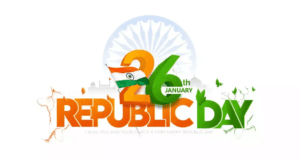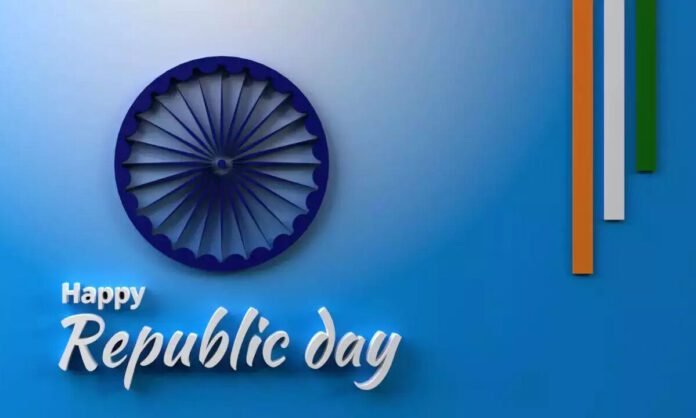India will have its 75th Republic Day on 26 January this year.
3 min read 2024-01-26, 12:00 AM IST
Summary
|

Republic Day is a significant and cherished occasion in the calendar of many nations around the world. It commemorates the establishment of a republic or the adoption of a constitution, symbolizing the triumph of democratic values and principles. In this essay, we will explore the essence and significance of Republic Day, with a particular focus on India’s celebration of this momentous day.
Historical Background
The roots of Republic Day in India can be traced back to its struggle for independence from British colonial rule. The country gained its independence on August 15, 1947, but it took a few more years to transition from a constitutional monarchy to a republic. The drafting of the Constitution of India was a monumental task undertaken by the Constituent Assembly, headed by Dr. B.R. Ambedkar. After rigorous deliberations and debates, the Constitution was adopted on January 26, 1950, marking the official birth of the Republic of India.
Significance of January 26
January 26 holds special significance in India’s history for multiple reasons. On this day in 1930, Mahatma Gandhi, the leader of the Indian independence movement, declared the Purna Swaraj, or complete independence, from British rule. The choice of January 26 for the adoption of the constitution was a fitting tribute to this historic declaration and a reminder of the long and arduous journey towards self-governance.
The Constitution of India
The Constitution of India is the supreme law of the land, providing the framework for the governance of the country. It enshrines the principles of justice, liberty, equality, and fraternity, forming the backbone of India’s democratic system. The drafting committee, under the leadership of Dr. B.R. Ambedkar, painstakingly crafted a document that reflects the aspirations and values of a diverse nation.
The Constitution lays down the fundamental rights and duties of citizens, the structure of the government, the powers of various institutions, and the procedures for governance. It is a living document that has stood the test of time, adapting to the evolving needs of society while preserving the core principles of democracy.
Republic Day Celebrations
Republic Day is celebrated with great enthusiasm and fervor throughout India. The main event takes place in the national capital, New Delhi, where the President of India hoists the national flag at Rajpath, followed by a grand parade showcasing the country’s cultural diversity, military strength, and technological prowess. The parade includes colorful tableaux, traditional dances, military bands, and displays of state-of-the-art weaponry.
One of the highlights of the Republic Day parade is the presence of a chief guest, often a head of state or government from another country. This tradition reflects India’s commitment to international cooperation and friendship. The Beating Retreat ceremony, held on January 29, marks the official end of the Republic Day celebrations, featuring performances by the three wings of the Indian armed forces.
Symbolism of the Republic Day Parade
The Republic Day parade is a visual spectacle that captivates the nation and the world. Each element of the parade carries deep symbolism, reflecting the values and achievements of the country.
- Flag Hoisting: The unfurling of the national flag by the President symbolizes the sovereignty of the Indian Republic. The tricolor – saffron, white, and green – represents courage, truth, peace, and faith.
- Cultural Tableaux: The colorful tableaux from different states and union territories showcase the rich cultural heritage of India. These depict traditional art forms, historical events, and the unique identity of each region, fostering a sense of unity in diversity.
- Military Might: The display of military strength through precision marching, advanced weaponry, and military bands underscores the country’s commitment to defense and national security. It is a tribute to the armed forces for their dedication and sacrifice in safeguarding the nation.
- Youth Participation: Republic Day celebrations often involve the participation of school children and youth groups. This symbolizes the importance of nurturing the values of democracy, citizenship, and national pride among the younger generation.
Reflection on Democratic Values
Republic Day serves as a time for introspection and reflection on the democratic values enshrined in the constitution. It is an opportunity for citizens to renew their commitment to upholding the principles of justice, liberty, equality, and fraternity. The occasion encourages active civic participation and reinforces the idea that a vibrant democracy requires the collective effort of its people.
Challenges and Opportunities
While Republic Day is a moment of celebration, it also serves as a reminder of the challenges and opportunities facing the nation. Challenges such as poverty, inequality, corruption, and social injustice persist, requiring ongoing efforts to address them. The occasion inspires a collective resolve to build a more inclusive and equitable society, where the benefits of democracy reach every citizen.
International Perspective
The celebration of Republic Day in India resonates with similar observances in other democratic nations. The idea of a republic, where power is vested in the hands of the people, is a universal aspiration that transcends borders. It reflects a commitment to governance by consent and the protection of individual rights.
Conclusion
In conclusion, Republic Day is a momentous occasion that goes beyond the ceremonial aspects of flag hoisting and parades. It is a celebration of the democratic spirit, a tribute to the visionaries who framed the constitution, and a call to action for citizens to actively participate in the democratic process. Republic Day serves as a constant reminder that the strength of a nation lies in its commitment to democratic values, justice, and the well-being of its people. As India celebrates its Republic Day, it sends a powerful message to the world about the resilience of democracy and the enduring spirit of a diverse and vibrant nation.


Outstanding feature
Insightful piece